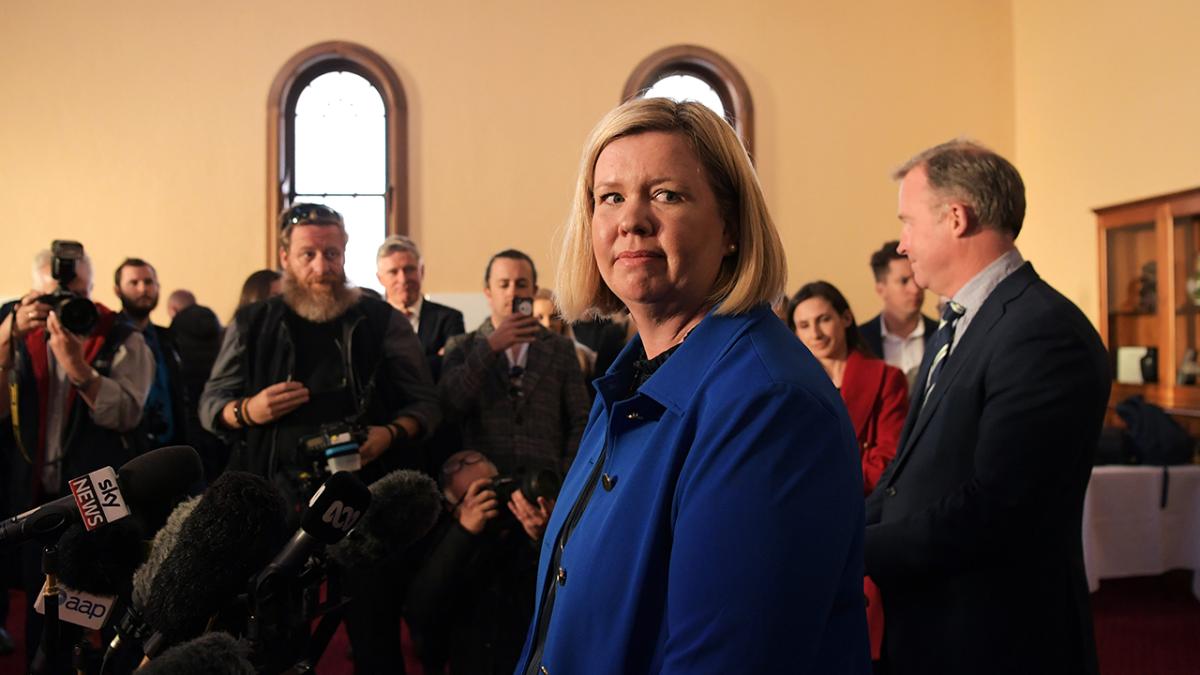
Despite the Federal Government’s hugely controversial Cashless Welfare Card bill passing the House of Representatives yesterday, it’s been rather remarkably revealed that one Liberal MP – who just last week spoke passionately against her own party’s proposed legislation – had the opportunity to kill the bill single-handedly. But when the time ultimately came, she simply chose not to.
Bridget Archer, the Federal member for Bass in Northern Tasmania, lambasted her own party’s policy in a frank and honest address last week.
In a scathing speech delivered to Parliament, Archer asserted that making the cashless welfare card permanent – as the bill now seeks to do – provides little more than a “band-aid” solution to larger systemic issues, and is a scheme that may ultimately do more harm than good.
“The cashless debit card is a punitive measure enacted on the presumption that all welfare recipients within the trial areas are incapable of managing their finances and require the government’s assistance,” Archer stated.
“Whenever you approach a human program by inciting shame and guilt, you have already lost those you are seeking to help,” the Member for Bass later noted.
Yet when the bill was put to a vote in Parliament yesterday, Archer did not put words into action by voting against the Government’s bill. Instead, she abstained from the vote altogether, allowing the bill to pass the floor of the House of Representatives by a one-vote margin of 62 – 61.
Had Archer intervened and voted against the bill, the resulting 62 – 62 tie would have seen the bill defeated, as Parliamentary procedure favours maintaining the status quo in the event of a voting deadlock.
The Cashless Welfare Card scheme has been under trial in four regions of Australia: The East Kimberley & Goldfields region in Western Australia, Ceduna in South Australia, and Hervey Bay and Bundaberg both in Queensland. The Government’s bill not only moves to make the scheme permanent, but will also shift 20,000 people in the Northern Territory off the current Basics card and onto the cashless welfare card program.
The program places Government benefit payments onto a restricted card, which recipients are unable to use to purchase alcohol or gambling products, certain gift cards, or to withdraw cash. Those on the program are able to apply to exit it, but must prove “they can demonstrate reasonable and responsible management of their affairs, including financial affairs,” according to the Department of Social Services website. Applications to exit are assessed case-by-case, and take into account factors such as “the interest of children,” and “if the participant has been convicted of an offence or served a sentence of imprisonment at any time in the last 12 months.”
A University of Adelaide research report into the scheme, which the Morrison Government itself spent $2 million bankrolling, reportedly found little evidence that the scheme has been effective in achieving meaningful harm reduction throughout its trial phase.
As revealed by The Guardian, a draft of the report – the final version of which seems unlikely to ever be made public – asserted that “little consensus was found as to whether the CDC was fulfilling its intended aims and having a positive impact on levels of alcohol and drug misuse” at the Goldfields trial site. Respondents interviewed by researchers also reportedly spoke of the “perceived stigma, shame and embarrassment” attached to the card.
Archer alluded to the report in addressing Parliament last week, stating “The cashless debit trial final evaluation report indicates that those benefits are limited in nature and scope, and do not demonstrate an overall improvement in the conditions which the program is intending to address,” and that “There is just not enough evidence that supports that this program is a gamechanger for these communities and the individuals placed on it to justify the associated harm that it causes.”
Archer also stated that it would be “difficult to believe that this program will end with these current sites.” Prime Minister Scott Morrison has stated that he is open to expanding the program, but the Government broadly claims it has no current plans to do so. Nevertheless, the threat of the program has created a “high level of anxiety” amongst low-socio economic residents in Bass, according to Archer.
However despite her passionate protestations, Archer also worked an exit strategy for herself into her address, stating that she would not be voting against the bill because there were no “alternative payment structures in place.”
And, true to her word, she did just that.
The bill passed.
All that talk, ultimately equating to not much.
The form line, as far as dissent amongst Liberal Party MPs is concerned, holds.



